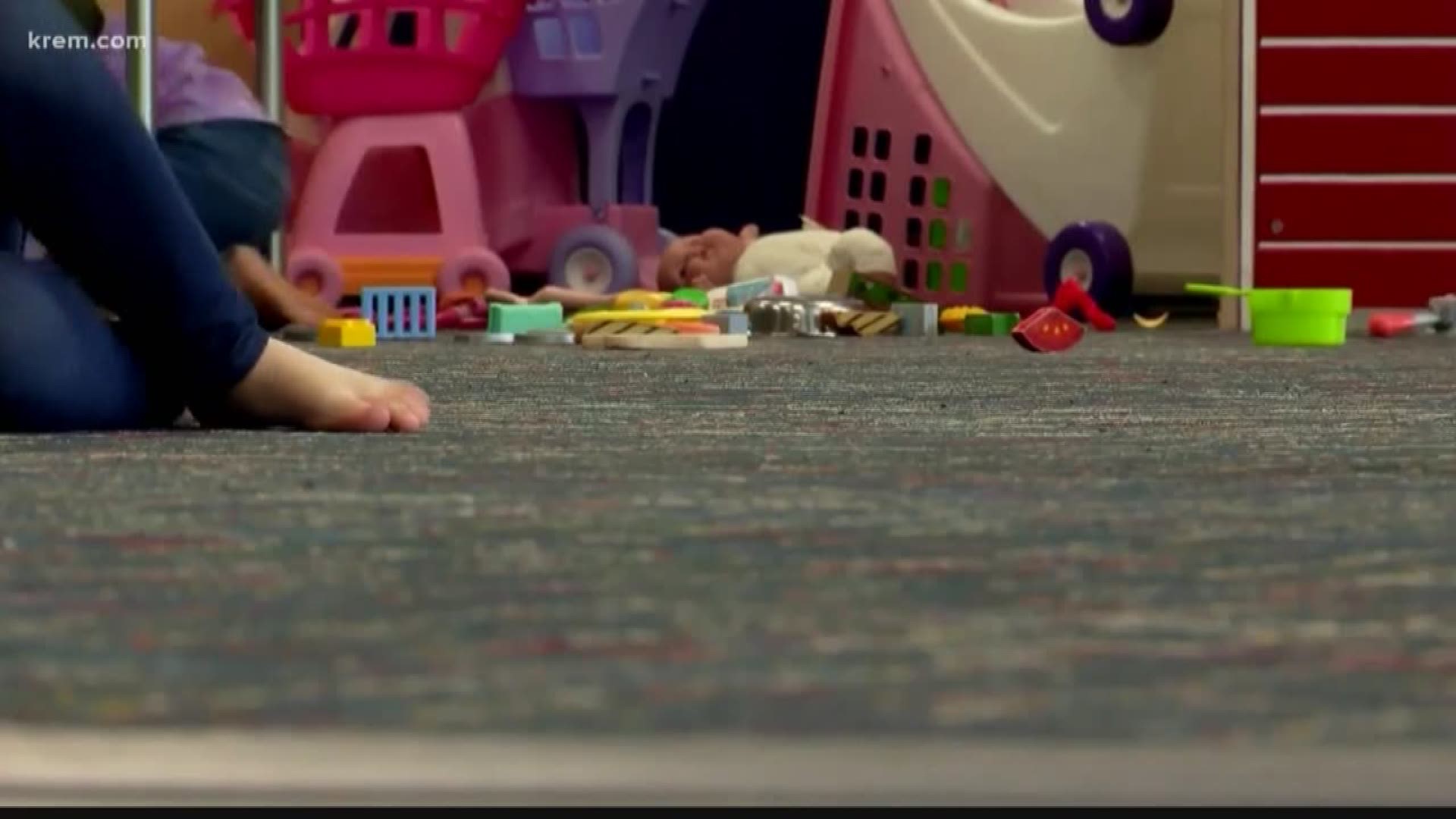SPOKANE, Wash. — Local domestic violence advocates and health officials are concerned about the impact shutdowns caused by the coronavirus outbreak can have on vulnerable populations in the community.
Governor Jay Inslee order a two week “Stay home, stay healthy” order to slow the spread of the illness. Health officials have made it clear that this is necessary to stop the spread of the virus. This has led to the temporary closure of businesses and schools are closed until April 24. This leaves many adults working from home or being laid off, leaving them uncertain about the future and stressed.
“In some cases, this situation introduces an increased risk for experiencing neglect, domestic violence or child abuse,” Associate Director of Community Health at Spokane Regional Health Dr. Ashley Beck said in a press release Wednesday.
Beck said meeting basic needs, like being able to buy groceries and toiletries, has become more difficult. Also, the constantly changing information about coronavirus can be difficult for people to deal with. These things can contribute to stress, anxiety and fear, which Beck said can increase risk for victims of child abuse and domestic violence.
As of Monday, Spokane Police officials said they have not seen an increase in calls about domestic violence since the closures of schools. This could obviously change as the closures continue. Another concern is that Spokane County has some of the highest domestic violence numbers in the state of Washington, according to the Spokane Regional Health District. In the county, there are 3,500 domestic violence cases a year, adding up to about 25 percent of all criminal cases.
Beck said the health district is working with its community partners to address the ongoing needs in the community.
“We are also seeing a community response that includes food distribution at many local school districts, strangers helping strangers by sharing necessities like toilet paper and diapers, businesses adapting to serve the community in new ways and agencies coordinating to support individuals in crisis,” she said in a press release.
Executive Director for Spokane Regional Domestic Violence Coalition Annie Murphey said it’s important that people feeling stressed know that they are not alone. She said agencies are making children and families their top priorities.
“Agencies are finding unique ways to remain engaged and connected to the people they serve. We want to stress the importance of the message ‘If you see something, say something’ and the importance of getting help for those facing violence and abuse in their homes,” Murphey said in a press release.
Beck said it is important for people to know this situation is temporary and it’s important for people to balance their stress levels. People should focus on their health and well-being, practice self-care and pay attention to physical signs of stress. Stress can impact your interaction with children and loved ones and can cause damage to relationships and harmful behavior.
Here are some tips for dealing with anxiety, stress or fear:
- Taking breaks
- Deep breathing
- Going for a walk or exercising
- Getting adequate sleep
- Eating healthy foods
- Spending time in nature
- Journaling or drawing
- Connecting with others by talking or seeking support
- Laughing or using humor
- Meditating
When it was announced that schools were going to close, there was an outpouring of support from the community offering care to other people’s children. Murphey said while this is a positive response, it can also put children at risk for harm.
Parents should consider the following when choosing someone to watch their child:
- How well do I know this person and any other adults in the household?
- What is this person’s experience with children?
- What is their experience with age-appropriate expectations?
- How many children will they be caring for at one time?
- Where will they be cared for? Is the environment child-proofed?
- Is the caretaker CPR certified?
- How does the caretaker handle stress — what support system do they have if they get overwhelmed?
- Has anyone in either household been ill or had a fever?
Local School districts are also setting up care for children of first responders and other essential workers. Reach out to your school district for more information.
Vanessa Behan also offers care for families in immediate crisis and has increased their capacity and service to include children from birth to 12-years-old.
If you ever feel unsafe in your home or with your family you should do the following:
- If you are experiencing life-threatening emergencies or an immediate safety threat, please dial 911.
- If you or someone you know is a victim of intimate partner violence please call YWCA Spokane at (509) 326-2255 or visit their website at www.ywcaspokane.org. For non-intimate partner and sexual assault please call Lutheran Community Services NW at (509) 624-7273 or visit www.lcsnw.org.
- If you are concerned about the safety and well-being of a child, contact Child Protective Services (509) 363-3333 or contact organizations like Vanessa Behan Crisis Nursery for resources.

